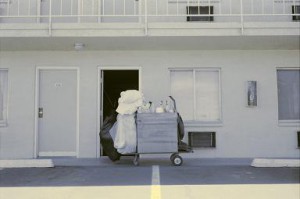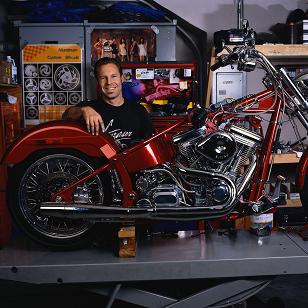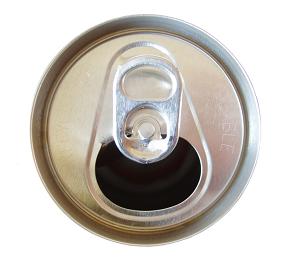If you can avoid driving when the weather turns bad, do it. However, if you need to drive, here are some tips to keep you safe and accident free.
Consider public transportation, carpooling, or a taxi.
If you are uncomfortable driving on snow and ice, explore other options for getting to work. You’ll feel much better and stay safer, and you’ll avoid causing problems for other drivers.
Make sure your tires have plenty of tread.
Your tires need a tread of at least 6/32” to be safe, and more is better. Have your mechanic measure your tread depth.
Slow down.
As Charleston car accident attorneys, one of the most common mistakes we see people make in the winter is failure to slow down. Your car is not as maneuverable on snow and ice as it is on dry roads, and you cannot stop as easily. Driving more slowly means you are less likely to lose control of your vehicle, and it takes less time to stop it.
Leave plenty of room, and stay alert.
Allow at least three times more space between your car and any vehicle in front of you. You need this cushion in case you need to stop your car. Your driving needs to have your full attention so you can anticipate slowing down or stopping. Put down the cell phone, the food, and anything else that may be distracting you.
Brake gently.
Do not suddenly hit your brakes on snow and ice, as you may put your car into a skid or a slide. Watch the cars around you to judge if you need to slow down. If you do not have antilock brakes, pump them gently to avoid locking. If you do have antilock brakes, keep the pressure to the brakes steady and they will pump themselves.
Let the car’s transmission help you.
If you have a car with manual transmission, drive one gear lower than you normally would for the speed you’re traveling. If you drive an automatic, put it in a lower gear than “D”. You’ll be driving more slowly and won’t need to use your brake as much. Do not use overdrive on snowy or icy roads.
Do not use cruise control when the roads are wet.
On wet roads, no matter the temperature, you lose control if you use cruise control. Even if no one else is around, leave cruise off.
If you slide . . .
Take your foot off the gas. If you have rear-wheel drive, steer in the direction you want to go. If you have a front-wheel-drive car, put the car in neutral until you regain control, then steer in the direction you want to go.
As you would in the summer, make sure you have plenty of windshield washer fluid and that your wiper blades are in good shape. Keep the inside of the windshield clean, and ensure that your headlights are visible whenever possible.
What’s your best winter driving tip?
 Many social drinkers have been charged with public intoxication, and it’s a charge that can be dismissed or reduced with a good South Carolina public intoxication lawyer.
Many social drinkers have been charged with public intoxication, and it’s a charge that can be dismissed or reduced with a good South Carolina public intoxication lawyer.
Public intoxication is a misdemeanor, and a conviction will stay on your record and appear on a criminal background check. A conviction could limit or jeopardize your future education, employment, and housing options. Expungement is not allowed for a public intoxication conviction, and a previous conviction may be used to enhance any later alcohol-related convictions or penalties.
Not only is public intoxication a possible charge if you’re seen exhibiting the classic signs of intoxication—such as slurred speech, glassy eyes, or stumbling—in a public place, but per city or county laws, you could also be arrested and charged if you’re drinking in a public place that doesn’t allow it, such as a park or church.
Often, law enforcement assumes that people arrested for public intoxication will simply pay the fine or serve the jail time, so they may not always follow proper arrest procedures. In addition, sometimes arrests occur without substantial or sufficient evidence. Officers are given wide latitude for determining whether you should be arrested.
If you are arrested, be sure to observe and remember as much as you can about the arrest procedure as it occurs (have others witness the arrest, if possible), and do not talk to anyone or answer any questions until you contact a public intoxication attorney. You may be required to serve some jail time, and a cash bond will be required before you’re released.
If you hire an experienced and competent attorney, he or she will protect your rights and do everything possible to negotiate with the prosecuting attorney and dismiss the charge or plead it down to a lesser charge that can be expunged. However, you need to hire the attorney as soon as possible to give him or her the best chance of helping you. If your arrest has already occurred, call an attorney and have him or her evaluate your case.
Have a question about public intoxication? Click here to contact Uricchio Law Firm.
 Riding a motorcycle presents its own set of challenges and issues, and intersections can be particularly dangerous for bikers. Stay safe with the following tips.
Riding a motorcycle presents its own set of challenges and issues, and intersections can be particularly dangerous for bikers. Stay safe with the following tips.
Assume that no one can see you.
While driving defensively is always a good idea, when you’re on a motorcycle, it’s a must. With all the distractions that car drivers have, they often aren’t paying attention like they should—and if you’re on a bike, you’re likely to lose in an accident.
Make yourself visible: turn on your headlight, wear brightly colored clothing and gear, and use hand signals as well as your bike’s turn signal. As you approach the intersection, be sure to stay out of drivers’ blind spots. Changing your lane position once or twice increases your visibility to those around you. Even a slight variation in your position will get the attention of drivers.
Have an escape plan in mind.
If you anticipate possible trouble spots as you ride, and create an out for yourself, you’ll know exactly what to do in case you have a problem. For example, if you ride in the middle lane, you have an extra lane to move into if you need it. If you ride a specific route each day, you’ll learn the traffic patterns and trouble spots and know what to do to have a smoother and safer ride.
As you enter an intersection, slow down.
Drivers turning left in front of bikes cause a large percentage of accidents, and if you’re riding fast through an intersection, you have less time and space to slow down. Don’t assume that no turn signal means no turn; many drivers fail to use them. Slow down and look in all directions as you proceed through the intersection—and do not change lanes while you are in the intersection unless absolutely necessary.
If you are at the front of the line when the light turns green, look both ways before proceeding in case someone runs the red light.
Always allow more space than you need.
Never tailgate, and stay as far back from the car in front of you as possible. If a vehicle is tailgating you, pull over and let it pass. You do not need to prove a point to anyone, and road rage is something you want to avoid, especially while on a bike.
Reconsider lane splitting.
Not only is it illegal in many states, it’s dangerous. It might save you a few minutes, but you run the very real risk of someone pulling out in front of you or hitting you. It’s not worth it.
As South Carolina motorcycle accident attorneys who also ride, we know how challenging it can be to ride. Stay safe!
 The Rocky Mountains are a spectacular sight that everyone should see at least once. As Columbia and James Island motorcycle accident attorneys, we love to ride in this area, and one of its most breathtaking motorcycle routes is the 80-mile Colorado River Headwaters Byway. You’ll pass through the Arapaho and Roosevelt national forests, lush mountain valleys, sparkling lakes, and awe-inspiring canyons with opportunities to fish, hike, raft the Colorado, and view the abundant wildlife that roam the area. You can also choose to simply sit along the banks of the Colorado, or on a boulder off the beaten path, and listen to the sounds of nature.
The Rocky Mountains are a spectacular sight that everyone should see at least once. As Columbia and James Island motorcycle accident attorneys, we love to ride in this area, and one of its most breathtaking motorcycle routes is the 80-mile Colorado River Headwaters Byway. You’ll pass through the Arapaho and Roosevelt national forests, lush mountain valleys, sparkling lakes, and awe-inspiring canyons with opportunities to fish, hike, raft the Colorado, and view the abundant wildlife that roam the area. You can also choose to simply sit along the banks of the Colorado, or on a boulder off the beaten path, and listen to the sounds of nature.
The Colorado River provides water for the southwestern states and is the river that created the Grand Canyon. This motorcycle route runs from the resort town of Grand Lake, CO and passes through the charming towns of Granby and Kremmling, ending at State Bridge. (Note: the road between Kremmling and State Bridge is gravel, so should not be traveled after rain or snow.)
Designated a National Scenic Byway in 2005, the Colorado River Headwaters Byway begins on Highway 34 in Grand Lake and travels southwest to Granby, and then Highway 40 takes you through Hot Sulphur Springs on your way to Kremmling. Be sure to spend a little time in each town experiencing its unique character and friendly people. For the final leg of the Byway, you’ll turn on County Road 1 in Kremmling and travel to State Bridge, passing by an historic wagon trail and watchable wildlife route.
If you enjoy fishing, you’ll love Grand Lake, Shadow Mountain Lake, and Lake Granby. You’ll also enjoy Williams Fork Reservoir, off Highway 40 near the little town of Parshall, where a wide variety of fish, including Northern pike and brown trout, are waiting for you. If you choose to spend the night, try the Historic State Bridge Lodge or Grand Lake Lodge, which is nestled in a grove of tall trees.
If you enjoy history and museums, the Pioneer Village Museum in Hot Sulphur Springs is housed in the original Hot Sulphur Springs School. It holds a skiing history display, 8,500-year-old Windy Gap artifacts, and a Pioneer Women exhibit. Kremmling’s Heritage Park Museum highlights the history of ranching. It holds the old Kremmling jail, the 1906 DNW&P Train Depot, the McElroy Livery and Barn, and the Horseshoe Ranger Station.
If you go to Colorado from a low elevation, take note that this byway ranges from 6,500–9.000 feet in elevation. You may feel a bit lightheaded or have difficulty breathing for the first day or so. Be sure to stay hydrated as you visit the Rockies, so you can fully enjoy the spectacular mountains, lakes, and canyons.
What’s your favorite motorcycle route in the U.S.?
 Bed bugs have become almost epidemic in some areas of the U.S., and even high-end hotels and lodges have found the little critters in their rooms. Bed bugs are easy to transport and can live up to a year without eating, so they can become a problem quickly. As South Carolina criminal defense attorneys, we travel frequently and have found that the following tips to avoid bed bugs have been helpful.
Bed bugs have become almost epidemic in some areas of the U.S., and even high-end hotels and lodges have found the little critters in their rooms. Bed bugs are easy to transport and can live up to a year without eating, so they can become a problem quickly. As South Carolina criminal defense attorneys, we travel frequently and have found that the following tips to avoid bed bugs have been helpful.
Know what bed bugs are and what they look like.
Bed bugs feed on blood at night and disappear during the day. Their bites leave red marks or welts, which often appear in a row on your arms or legs. The Cornell University Cooperative Extension has created a card to take with you when you travel to show you what bed bugs look like and how to inspect your hotel room.
Research the hotels or motels you plan to stay in.
The Bedbug Registry at http://bedbugregistry.com/ is a database of bed bug reports from around the U.S. and Canada. Google the name of each hotel or motel with the words “bedbug” and “bed bug” to see if anyone has reported them. You can also check with sites such as tripadvisor.com and hotels.com to see if there are any negative reviews related to bed bugs.
Call and talk to the desk clerk.
Most reputable hotels and motels are keenly aware of the problem and proactively spray regularly. If you call and the desk clerk seems evasive or doesn’t want to talk about their bed bug control plan, find another place to stay.
Inspect your room before you bring luggage in.
Get out a flashlight and look for blood spots, bugs, shed skins, or feces (which look like pepper) in corners, cracks, and crevices near the bed. Search around the headboard and the mattress, especially near stitching and seams. Check the bed frame, bed ruffles, and where the sheets tuck in. See if the sheets, pillows, or pillowcases have old blood spots. Open the drawers of bedside tables, and check upholstered furniture, behind pictures, and inside drapes.
If you do find evidence of bed bugs, ask for another room, but do not accept one that is adjacent to the infested room. You’ll need to repeat the inspection in the new room.
Keep your luggage and possessions away from possible infestation.
If your room passes inspection, do not assume all is well. There could be a recent infestation from the guest before you. Do not put anything on the bed or on the bedside table. Always keep your luggage and bags (including purses) on racks away from the wall, on tables with metal legs, or in the tub. Buy some plastic bags that seal to put your bedclothes in, and do not add them to your regular luggage.
After you get home . . .
While just one pregnant female can start an infestation in your Folly Beach, Ladson, or St. George home, the good news is that bed bugs cannot live in very high or very low temperatures. When you return home, leave your suitcases outside, and wash and dry all your clothing (plus purses and bags if possible) on the highest temperature settings possible to kill any hitchhikers. If you cannot wash or dry something, put it in the freezer for at least three weeks.
Do you have any additional tips to avoid bed bugs?
 According to the South Carolina Attorney General’s office, more than 36,000 domestic violence incidents are reported every year, and at least 30 women are killed every year by their partners.
According to the South Carolina Attorney General’s office, more than 36,000 domestic violence incidents are reported every year, and at least 30 women are killed every year by their partners.
South Carolina law defines criminal domestic violence as offering, attempting to cause, or causing “physical harm or injury to a person’s own household member with apparent present ability under circumstances reasonably creating fear of imminent peril.” Household members are defined as “a spouse, a former spouse, persons who have a child in common, or a male and female who are cohabiting or formerly have cohabited.”
In addition, South Carolina elevates criminal domestic violence to the crime of “criminal domestic violence of a high and aggravated nature” if a deadly weapon is involved, the incident results in serious bodily injury, or the incident “reasonably causes a person to fear serious bodily injury or death.”
If convicted of criminal domestic violence, the first and second offenses are misdemeanors and result in fines of $1,000 up to $5,000 and jail time ranging from 30 days to one year. If the offender completes a domestic-violence treatment program, these penalties may be reduced or suspended—except for the mandatory minimum thirty-day jail sentence on a second offense.
A third conviction of criminal domestic violence is a felony, and the offender must be jailed for a minimum of one year. Any conviction in another state of a crime similar to criminal domestic violence of a high and aggravated nature within the preceding 10 years counts as a prior offense in South Carolina. If you have previous domestic violence conviction, you need a South Carolina criminal defense lawyer to assist you in reducing the impact of that offense.
Any conviction in South Carolina of criminal domestic violence of a high and aggravated nature is a felony punishable by a minimum of one year in jail.
Law enforcement officers have the right to execute a warrantless search and arrest if they have probable cause to believe the person is committing or has just committed criminal domestic violence. Violating the terms of an order of protection related to domestic violence, including an order issued in another state, is a misdemeanor and will result in jail time and a fine.
Statutes governing criminal domestic violence can be found at SCStateHouse.gov.
Whether you live in Hanahan, Summerville, or North Charleston, if you have been accused of criminal domestic violence and need legal representation by an experienced South Carolina criminal defense attorney, contact us today.
 We trust medical professionals and healthcare facilities to have the expertise to give us the highest quality care at the most urgent and critical times. While the vast majority of medical personnel strive to meet this goal, unfortunately a small minority does not and may be guilty of medical malpractice.
We trust medical professionals and healthcare facilities to have the expertise to give us the highest quality care at the most urgent and critical times. While the vast majority of medical personnel strive to meet this goal, unfortunately a small minority does not and may be guilty of medical malpractice.
Medical malpractice is defined as any course of action or treatment that deviates from accepted care standards and causes injury or harm to the patient. It occurs more often than many people realize, and as South Carolina medical malpractice attorneys, we have the knowledge and experience to help determine if you have a valid claim.
If you have a medical malpractice case, we will file it for you and fight for your rights—but we need to hear from you in a timely manner In South Carolina, the statute of limitations for medical malpractice or negligence varies depending on the age of the patient, so the sooner you seek a medical malpractice lawyer, the better.
In determining whether medical malpractice has occurred, we look at several factors, including whether the medical professional or healthcare facility was negligent and caused injury that resulted in damages, such as time lost from work, disability, and death.
Possible examples of medical malpractice include . . .
- Delayed, incorrect, or improper diagnosis, especially if it leads to delayed or improper treatment.
- Failure to diagnose or failure to treat.
- Failure to obtain informed consent. A signed consent form does not absolve the facility or provider from malpractice if accepted standard of care is not met.
- Obstetrical or delivery room malpractice, including birth injury.
- Neonatal and pediatric malpractice.
- Negligence in performing surgical procedures, including errors in administering anesthesia.
- Failure to follow up appropriately.
- Failure to monitor or patient abandonment.
- Prescription or medication administration errors.
While not every negative medical outcome is the result of malpractice, we have the resources and experts to analyze your situation—no matter how complex it may be—and to aggressively pursue a legal remedy.
If you’re uncertain whether you’ve been the victim of medical malpractice, contact us today, and let a medical malpractice attorney determine whether you have a claim.
 You have your dream motorcycle, but you’re not sure your current mechanic is the right one to keep your bike in top condition. How can you tell whether you need to find a new mechanic? Unfortunately, we’re not aware of any national certification for motorcycle mechanics like the one automotive mechanics have, but there are a few ways to tell if your guy or gal is competent.
You have your dream motorcycle, but you’re not sure your current mechanic is the right one to keep your bike in top condition. How can you tell whether you need to find a new mechanic? Unfortunately, we’re not aware of any national certification for motorcycle mechanics like the one automotive mechanics have, but there are a few ways to tell if your guy or gal is competent.
Has he or she taken manufacturer training?
If your mechanic has trained with Harley or Honda, he or she should be a good choice for your Harley or Honda bike. Typically, mechanics who are committed to their careers seek out manufacturer or other specialized training to keep up their skills, and they take new or refresher training regularly. If your mechanic has never taken any, or it’s been 20 years since he or she has, maybe it’s time to look elsewhere.
With that said, motorcycle dealerships don’t always employ the best mechanics. Yes, the dealership is a good place to start when looking for a mechanic, but don’t assume that every dealership mechanic is a good one. In addition, you’ll typically pay more to a dealership than you will to an independent shop or self-employed mechanic.
How much experience does he or she have?
Of course, every seasoned mechanic was a new mechanic at some point. If you choose to work with a less-experienced mechanic, ensure that he or she has access to more experienced mechanics in case of problems.
How professional is your mechanic?
Do you receive estimates (preferably written), and is the final bill approximately the same? When the mechanic actually does the work, he or she may find other issues. When that happens, he or she should contact you for permission to continue with the new work. Communication is a key trait for good mechanics, no matter what they repair.
Are the repairs completed promptly, and do you receive an itemized bill? If not, perhaps it’s time to start looking. Professional mechanics will also show you defective parts and keep your bike as clean as possible.
Does he or she have references and liability insurance?
Any good mechanic should be able to provide references. Liability insurance protects you in case the bike is damaged while being repaired.
Do you like him or her?
If you don’t like your mechanic, take that as a sign and move on. You don’t have to be best friends, but you do need to feel respected as the client. Your mechanic should be open to answering questions and giving you advice about keeping your bike in top mechanical shape. The best mechanics are glad to talk shop with you and believe part of their job is to educate and inform.
As South Carolina motorcycle accident lawyers who ride, we’ve seen our share of good and not-so-good mechanics. Do you have any tips for those who are seeking their perfect mechanic?
 Being pulled over for DUI or DUAC is one of the most frightening situations you can be in, but knowing what to do beforehand can make the difference between dismissal and conviction.
Being pulled over for DUI or DUAC is one of the most frightening situations you can be in, but knowing what to do beforehand can make the difference between dismissal and conviction.
First, as DUI lawyers in South Carolina, let us say that you should never drink and drive. If you go out, have a designated driver—or if you do have too many drinks, call a friend or taxi to take you home. However, if you’re arrested on suspicion of DUI or DUAC, take the following steps to give your DUI attorney the best chance of defending you.
Before anything happens, know which lawyer you would call, and do it as soon as possible.
Put a South Carolina DUI attorney’s number in your cell phone, and make sure your family members have the number also, just in case. Better to have it and never need it than to need it and not have it.
Be aware that the entire arrest must be videotaped.
While there are exceptions to this requirement, generally speaking from the moment you’re pulled over until you’re on your way to the police station, the arrest must be videotaped. This includes the Miranda Warnings, the entire testing procedure, and a 20-minute observation period. The police must perform and tape the breath test within two hours of pulling you over.
While you may be experiencing a variety of emotions during this process, our best advice is to remain polite and cooperative.
Remember that you have the right to remain silent.
You are not required to answer any questions that a police officer asks you. Your right to remain silent cannot be held against you, but if you speak and seem to be slurring your words, that can be used to convict you. Further, it is never a good idea to be rude or threatening towards an officer. This type of behavior only further complicates future negotiations.
Know that you have the right to refuse roadside sobriety tests.
Field sobriety tests can be extremely difficult for even sober individuals to perform correctly. This is especially true if you have a medical condition that hinders your capabilities. The time of day, location and terrain of the incident site can all further impact your ability to successfully complete these test.
A refusal to take a field sobriety test may not be considered disobeying a police command.
Understand the consequences of refusing a breathalyzer.
You have every right to refuse to blow into a breathalyzer, but as South Carolina is an implied consent state, your license will be automatically suspended for six months if you refuse. There are, however, alternative license options available that your attorney can further explain to you.
Even if you’re too nervous to remember all of these tips, taking just one or two will help your SC DUI lawyer defend your case.


